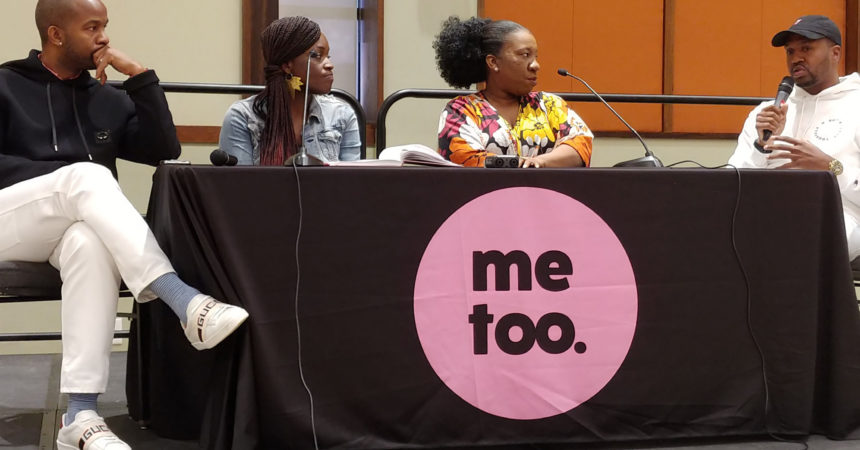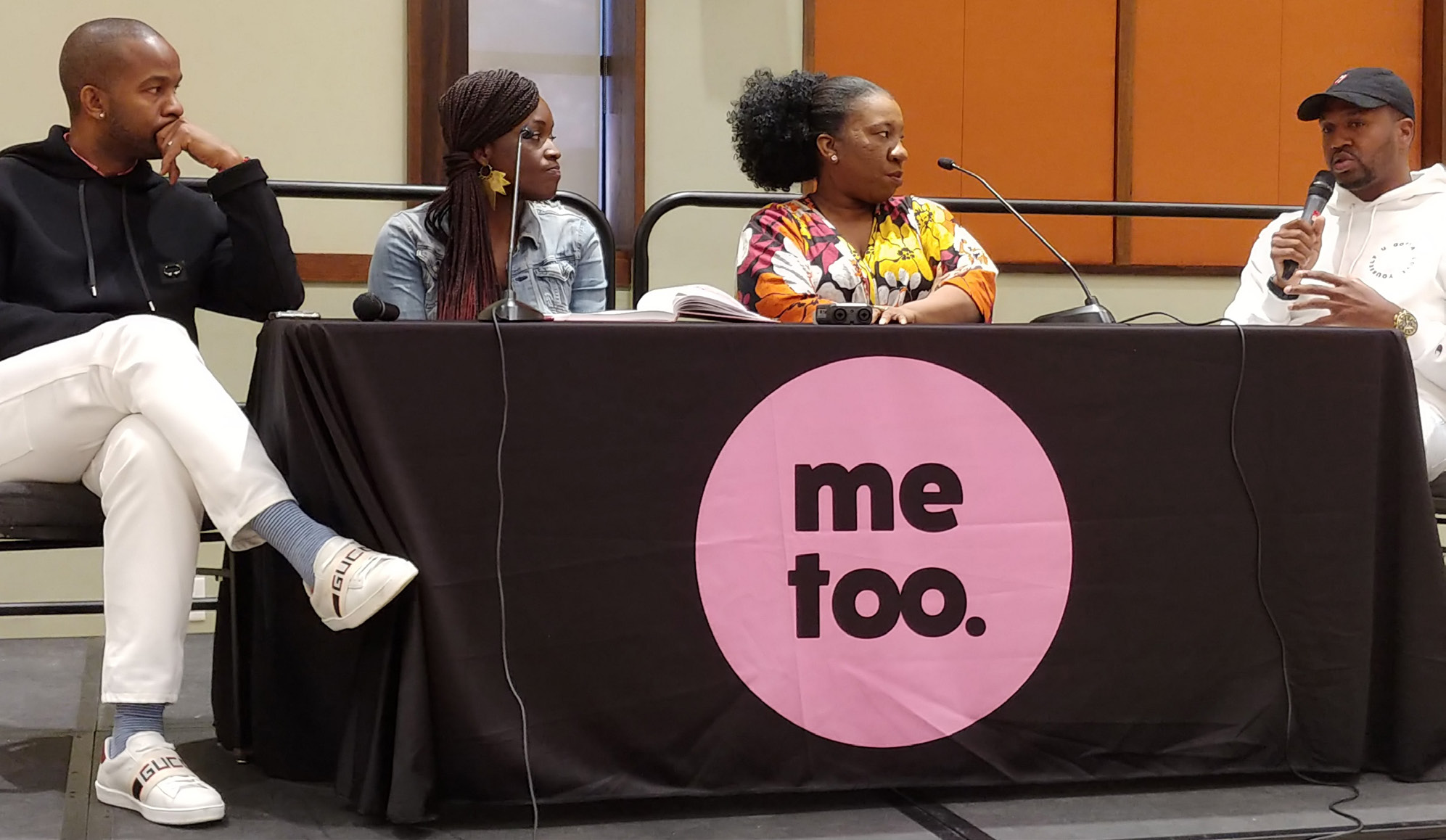
Me Too founder: FAMU stop wasn’t ‘a bashing between men and women’

Me Too founder Tarana Burke (second right) is joined by former NFL player Wade Davis (left) Yaba Blay (second left) and producer Van Lathan at FAMU. Photo by St. Clair Murraine
By St. Clair Murraine
Outlook staff writer
At one point in Tarana Burke’s fireside chat on sexual violence, the microphone went out in the FAMU Grand Ballroom.
By then, Burke had established why she was there for the two hour conversation.
“It isn’t a bashing between men and women,” said Burke, founder of the Me Too movement. “It is a global movement.”
The stop at FAMU last Friday was part of a tour of Historically Black Colleges and Universities that Burke has undertaken over the last month. She brought along college professor and author Yaba Blay, former NFL corner back Wade Davis and television producer Van Lathan.
During the conversation, several students shared details of their experience with sexual violence, while others simply wanted to know how to handle it or even how to cope.
That’s a step that surveys have found that not too many college students who have been victims of sexual violence or harassment don’t usually take. According to the Department of Health and Human Service, only one in five college-age women report an attack to law enforcement.
However, reporting can help school officials eliminate assaults, the report said.
FAMU has been taking steps to encourage students to report incidents they know of or may have been involved in. It has been using a $300,000 federal grant in that pursuit for the past three years, the university said in a statement prior to Burke’s visit.
Students are told of FAMU policies and legal standards on sexual and domestic violence, said Yolanda Bogan, program director of the FAMU Center for Interpersonal Violence, Intervention and Prevention, said in a statement.
“Our findings reinforce the need to engage all students, not just females, in the fight against gender-based violence,” said Bogan.
She added: “Being Black and female or being Black and gay increases a person’s likelihood of being a victim of gender-based violence so as a FAMU family we have to maintain awareness of these issues on our campus even beyond the funding of this project.”
Bogan went on to explain why few assaults are reported.
“The desire to shield Black men from the legal system, which has been shown to engage in harsher sentencing for Black men, contributes to underreporting to the police,” she said. “A person’s response to a victim’s disclosure of gender-based violence which in some way, blames the victim, also contributes to underreporting, isolation, and feelings of guilt and shame. When experienced by college students, these negative responses may make it less likely that victims will be able to perform academically.”
Prior to her appearance at FAMU and other colleges, Burke explained her reason for the HBCU tour.
“Our goal is to reframe and expand the global conversation around sexual violence to speak to the needs of a broader spectrum of survivors,” she said. “Young Black people across the Diaspora- along spectrums of class, gender, sexuality, and ability- rely on and invest in HBCUs not to just facilitate an education, but to keep them safe while doing so.
“We’re holding academic institutions accountable and harnessing our collective power to create strategies for sustained systemic change.”







